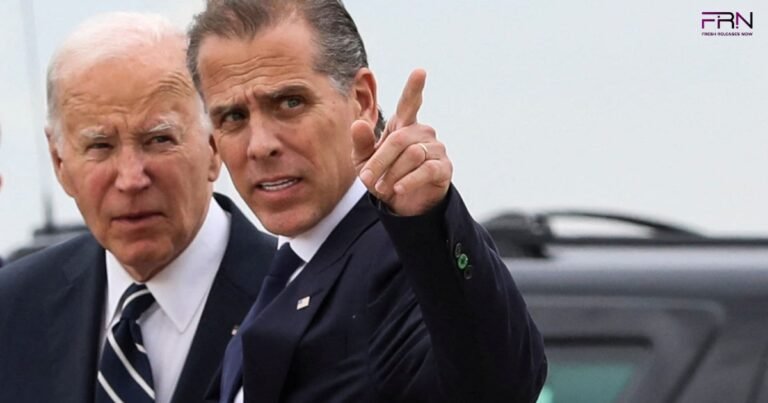
In a heated Oval Office exchange, President Donald Trump confronted South African President Cyril Ramaphosa with widely debunked claims of a white genocide. The unexpected allegation, rooted in far-right conspiracy theories, sparked diplomatic tensions and raised global concerns. The concerns were about the spread of misinformation at the highest levels of international diplomacy.
Oval Office Tensions: Trump’s Unexpected Accusation
In a tense Oval Office meeting on May 2, 2025, President Donald Trump confronted South African President Cyril Ramaphosa with unsubstantiated claims of a “white genocide” targeting white farmers in SA. Trump presented videos featuring controversial rhetoric for Julius Malema, leader of the far-left Economic Freedom Fighters (EFF). EFF is a party not part of South Africa’s ruling coalition. Ramaphosa firmly rejected these allegations, emphasizing that crime in SA affects all citizens, predominantly Black, and that such narratives do not reflect government policy.
The meeting, intended to strengthen the U.S.-South Africa relations, was overshadowed by Trump’s focus on these debunked claims. Ramaphosa, who was prepared to discuss trade and economic cooperation, was taken aback by the unexpected events. Despite the confrontation, Ramaphosa later described the meeting as having gone “very well”.
White Genocide Myth Resurfaces at Highest Diplomatic Level
The resurgence of the “white genocide” conspiracy theory at the highest diplomatic level has intensified following a contentious Oval Office meeting between President Donald Trump and South African President Cyril Ramaphosa. The latest developments are:
- Disputed Evidence: Trump showcased a provocative video alleging the persecution of white farmers in South Africa. The video featured clips of anti-apartheid chants and images of white crosses supposedly representing murdered farmers. Thus, these claims have been largely dismissed as unfounded by experts.
- Ramaphosa’s Response: President Ramaphosa denied any genocide and questioned the video’s credibility. He emphasized that crime in South Africa affects all citizens, mainly Black, and that there is no targeted violence against white people.
- U.S. Policy Actions: In response to these claims, the Trump administration has taken steps such as freezing financial aid to South Africa and granting asylum to a group of white South Africans, citing alleged persecution.
- South African Government’s Stance: President Ramaphosa has dismissed allegations that white people are being persecuted in South Africa as a “completely false narrative”. He urged unity within the country and emphasized that such claims lack a factual basis.
- International Reactions: The incident has further strained diplomatic ties between the two nations. South African officials and statistics have repeatedly denied the existence of racially targeted violence against white farmers, asserting such allegations to be unfounded.
- Expert Analysis: Experts have criticised attempts to suggest that South Africa’s land reform laws are in any way similar to Zimbabwe’s forcible confiscation of land belonging to white farmers. The South African law bars the arbitrary takeover of land and provides for compensation in most cases.
U.S.–South Africa Relations Strained by Disinformation
Following President Donald Trump’s confrontation with South African President Cyril Ramaphosa over debunked claims of a “white genocide,” U.S.-South Africa relations have further deteriorated. The aftermath has seen a series of diplomatic and policy actions that have strained ties between the two nations.
- Expulsion of South African Ambassador: The Trump administration declared South African Ambassador Ebrahim Rasool persona non grata, leading to his expulsion from South Africa by the United States. This action followed Rasool’s criticism of President Trump’s policies, particularly regarding South Africa’s land reform and racial issues. South Africa’s government expressed regret over the expulsion but emphasized its commitment to maintaining diplomatic relations.
- Suspension of U.S. Aid Programs: The U.S. suspended significant aid programs to South Africa, including the President’s Emergency Plan for AIDS relief (PEPFAR). Thus, this program has been instrumental in providing HIV treatment to millions of South Africans. The aid cut has raised concerns about the potential health crisis due to disrupted treatment services.
- Trade Relation Under Threat: South Africa’s eligibility under the African Growth and Opportunity Act (AGOA), allowing duty-free exports to the U.S., is now uncertain. The potential loss of AGOA benefits could have significant economic implications for South Africa. Therefore, it affects various sectors reliant on U.S. trade.
- Diplomatic Snubs and Tensions: U.S. Secretary of State Marco Rubio declared that he would not attend the G20 summit in Johannesburg, citing disagreements over South Africa’s policies. Thus, this decision is seen as a diplomatic snub and reflects the growing tensions between the two countries.
- Controversial Refugee Policy: The Trump administration offered refugee status to white South African farmers, citing alleged persecution. Thus, this move has been criticised as politically motivated and has further strained diplomatic relations. Notably, some Afrikaner groups declined the offer, choosing to remain in South Africa.
What Does This Incident Signal About Trump’s Foreign Policy Approach?
The Oval Office confrontation between President Donald Trump and South African President Cyril Ramaphosa over debunked “white genocide” claims reveals significant patterns and implications about Trump’s broader foreign policy approach. Here’s what this incident signals:
- Reliance on Misinformation: The confrontation was based on a misleading video and a discredited claim. It underscores a pattern where Trump’s foreign policy decisions and rhetoric are sometimes informed by unverified or partisan media rather than intelligence or diplomatic briefings.
- Unilateral and Confrontational Style: Trump blindsided Ramaphosa with the allegations, reflecting his tendency to confront rather than collaborate. Thus, this ambush-style diplomacy disrupts trust and signals that allies and partners might be subjected to surprise criticism without warning.
- Preference for Bilateral Pressure Tactics: The immediate consequence, such as freezing aid and threatening trade benefits like AGOA, shows how Trump uses financial and political pressure as leverage in bilateral relations. It is consistent with his transactional view of foreign affairs.
- Strained Alliances with the Global South: The incident could deepen distrust among African nations toward the U.S., especially if they view American leadership as biased, unpredictable, or disrespectful of post-colonial sovereignty. Furthermore, it may open the door for closer ties with non-Western powers like China or Russia.
Conclusion
The Oval Office clash highlights the dangers of misinformation in diplomacy and reflects a shift toward confrontational, populist foreign policy under Trump. As strained U.S.-South African relations reveal broader geopolitical consequences, the incident underscores the urgent need for fact-based dialogue and respectful international engagement.


